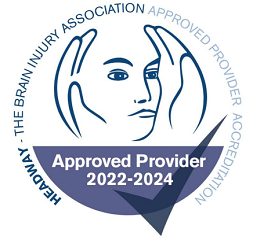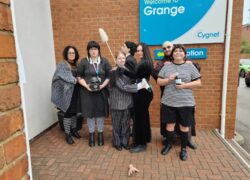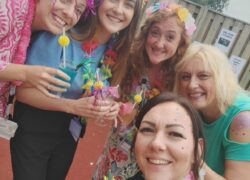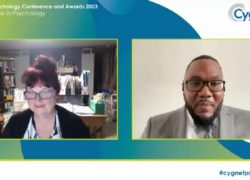Gender: Male
Age: 18+
Bed: 8
Cygnet Grange is registered as a hospital and is designed specifically to provide a clinically led evidence based neuropsychiatric pathway for those individuals presenting with behaviours that challenge. Our focus is to create a therapeutic rich environment which engages our service users and offers them the opportunity to minimise their challenging behaviour and maximise their independence.
We provide a resource intensive dedicated in-house Neuropsychiatry inter-disciplinary team. Our person-centred approach puts the individual at the centre of their treatment and discharge planning. The service offers a wide range of activities and facilities to promote independent function. Positive behaviour goals are focussed on discharge planning to support service users to return to community living – either with support or independently.
Our inter-disciplinary team:
- Consultant Psychiatrist
- Psychologist
- Occupational therapist
- Speech and language therapist
- Clinical hospital manager
- Therapy coordinator
- Nurses across RMN/RNLD disciplines
- Support workers
Our service user profile:
- Men aged 18+ affected by a neurological condition where challenging behaviour is the leading impairment
- May be detained under the Mental Health Act, informal or subject to DoLS
- May have a forensic history
- With a diagnosis of:
- Established or suspected Acquired Brain Injury including those sustained through trauma, anoxia, stroke, tumour, virus or infection
- Established or suspected neurodegenerative condition including Huntington’s Disease
- Specialist Dementia e.g. Frontotemporal Dementia
- Korsakoff’s Syndrome or other substance abuse related brain injury
- Presenting symptoms may include:
- Dysphasia or other communication problems
- Moderate to severe cognitive impairment
- Respiratory difficulty requiring support of BiPAP (Bi-level Positive Airway Pressure) or CPAP (Continuous Positive Airway Pressure)
- Mobility impairments
- Presenting Comorbidities may include:
- Psychiatric disorders including psychoses
- Complex epilepsy
- Post-ictal psychosis
- Organic personality disorder
Our facilities:
- En-suite bedrooms
- Therapy kitchen and additional therapy spaces
- Dining room
- Living room
- Additional communal areas
- Multi-functional outdoor space including gardens
- Accessible bathrooms
- Onsite laundry facilities
Photo Gallery
Please click on the images to enlarge.






